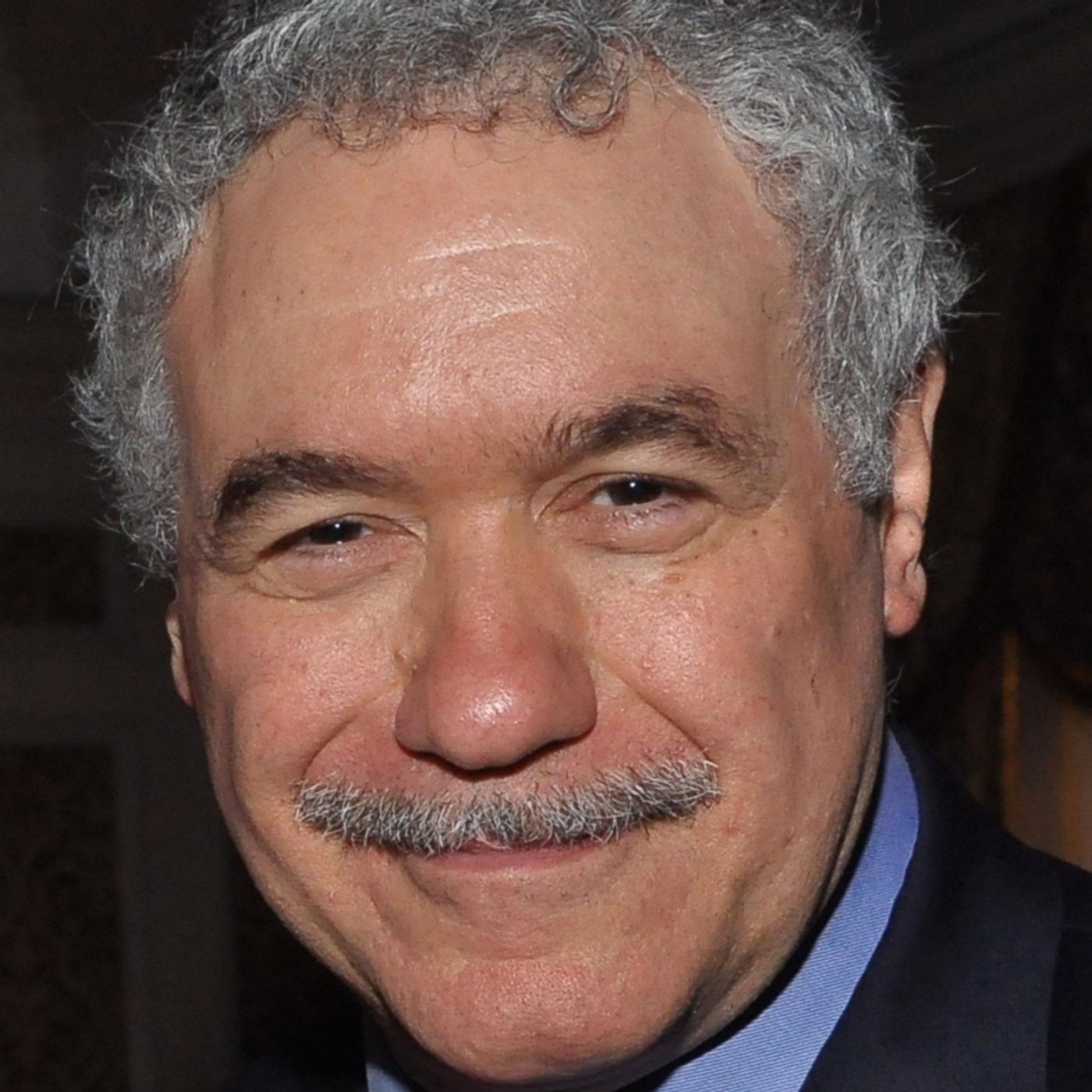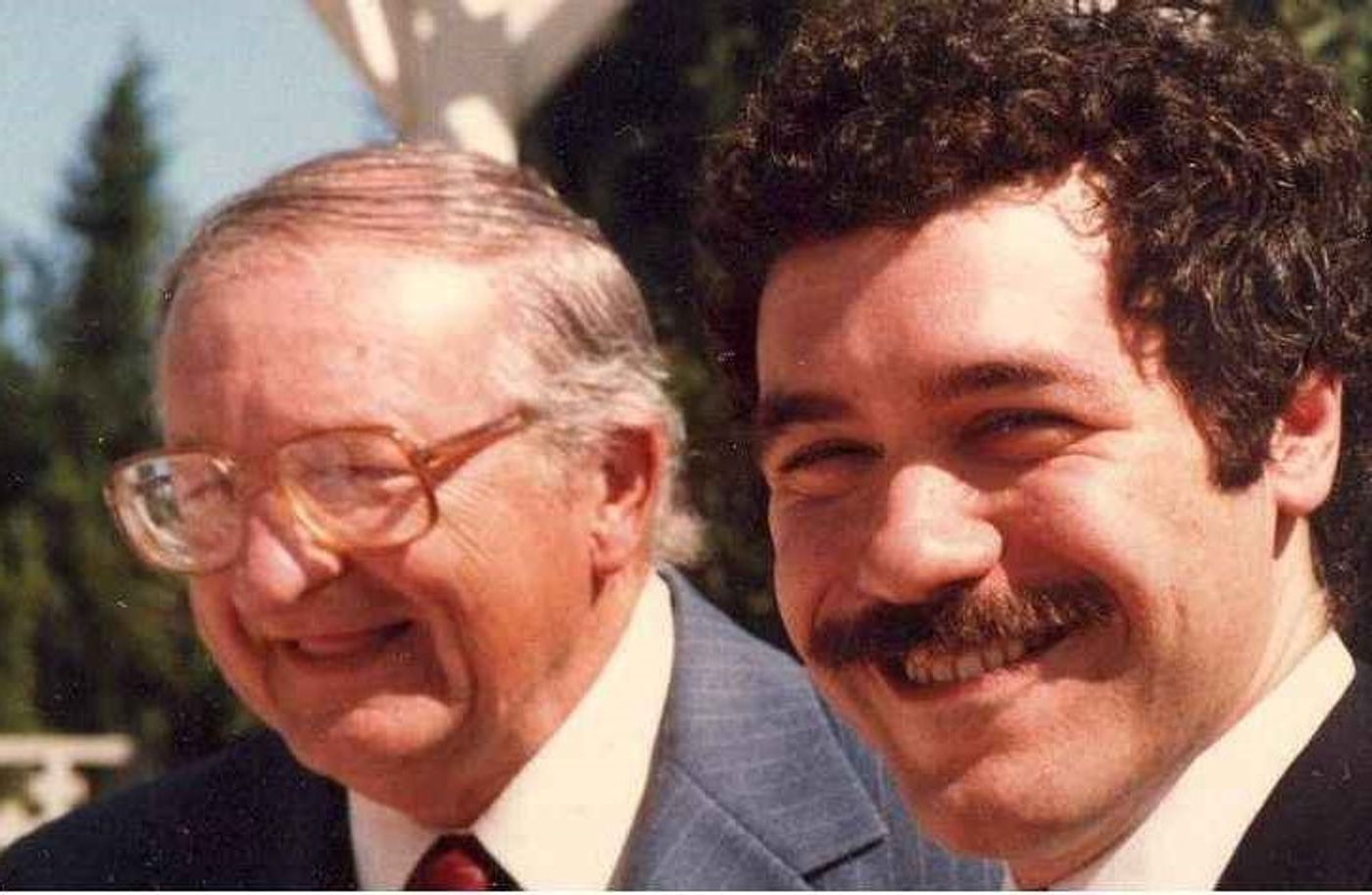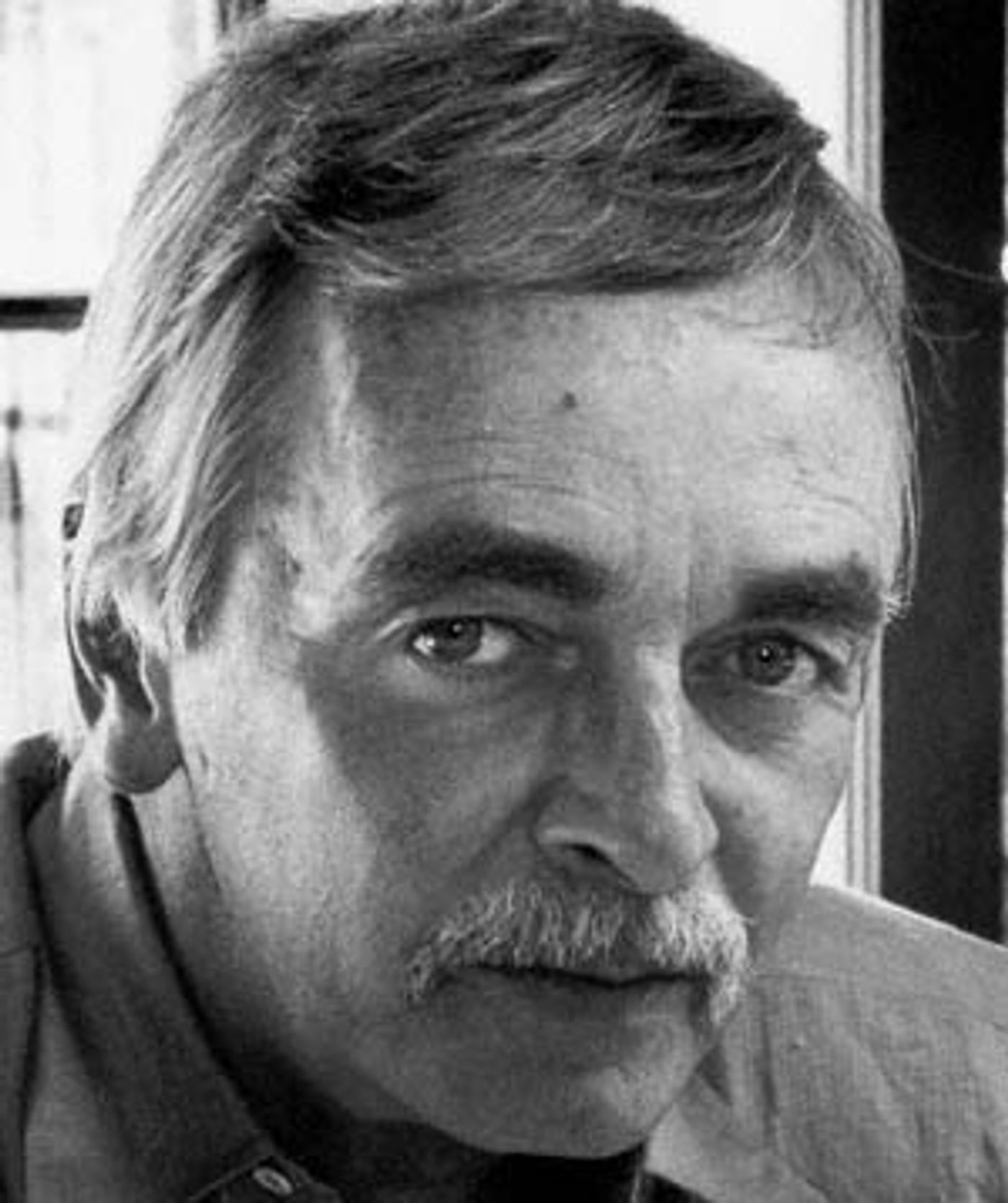Interview: Give Credit Where Credit is Due When it Comes to The Orchestrator!
Orchestrator Larry Blank on why he has made it his mission to see that orchestrators are properly acknowledged and more.

Recently I wrote a Broadway World feature dealing with a partial restoration of Robert Ginzler’s original orchestrations for Bye, Bye, Birdie at the Kennedy Center by conductor John Bell with additional work by Joshua Clayton. When the piece was shared on social media, it started a bigger conversation about proper credit for the original orchestrator. Robert Ginzler was somehow never acknowledged in the Kennedy Center program.
Larry Blank is an esteemed conductor, vocal arranger, and orchestrator. His orchestration credits include The Drowsy Chaperone, White Christmas, Catch Me If You Can, and Holiday Inn.
Larry was mentored for orchestration by the great Irwin Kostal. You know, the guy who co-orchestrated West Side Story with Sid Ramin and composer Leonard Bernstein. He has been lucky enough to have known pretty much every great orchestrator who has worked on Broadway and beyond such as Philip J. Lang, Ralph Burns, Jim Tyler, Billy Byers, Jonathan Tunick and many more. He also wrote charts for such legendary composers as Jerry Herman and was Marvin Hamlisch’s conductor for many years. He is currently Resident Conductor for the Pasadena Pops and is the admin for a wonderful Facebook group called Musical Theatre Orchestration. For those of you that geek out over a good clarinet lick or trumpet fill, this group is definitely for you.
What you might not know is that Larry did a fair amount of work on Broadway’s juggernaut hit The Producers without being credited for his accomplishments. When the movie musical came out, he was rightfully credited with principal orchestrator Doug Besterman.
This kind of billing issue for orchestrators has been going on for many many years. It has become Larry Blank’s mission to educate producers as to why crediting the original orchestrator is so important. With many revivals and regional productions using reductions and reimagining the original material, the issue of only crediting the person who did said reduction is unfortunately becoming more and more prevalent.
Larry Blank has been for many years a very talented artist. More importantly, he remains steadfast in his mission to give credit where credit is due when it comes to orchestrators. For those of us that know, orchestration is a very important component to any musical or film or anything in the entertainment industry. The musicians are not making it up as they go along. Next time you are moved by a piece of music, consider saying thank you to people like Larry Blank and all who have come before. Just remember without there being an orchestrator, it’s just a piano.
When you started out, was becoming an orchestrator always your goal?
I started out wanting to be an actor. I worked my way up from rehearsal pianist to asst conductor then conductor. I always had an interest in orchestrating/arranging and pursued it until I felt comfortable and proficient.

Photo courtesy of the artist.
Who would you say taught you the most about orchestrating?
Studying the work of so many orchestrators was helpful. Irwin Kostal took me under his wing and explained everything I asked and more. He was my mentor and strongest influence. I had great help from Ralph Burns, Phil Lang, Larry Wilcox, Michael Gibson and Jonathan Tunick. They were always ready for a discussion. I also learned plenty from conductors Don Pippin, Rudi Bennett and Milton Rosenstock.
What was your first professional job as an orchestrator (credited or uncredited)?
I had done a few measures here and there and as early as 1976 I scored Snoopy for a small band. As my career accelerated I did more and more bits and pieces, mostly without credit on shows I was conducting.
Back in the day of the Golden Age of Broadway, some playbills would use the term orchestrator and arranger interchangeably. This of course should not be the case. For those that don’t know, can you please explain the difference?
An orchestrator is by necessity an arranger in many cases -especially for theatre music and popular music. Technically. – an orchestrator is the person who says…let’s have the flutes play that and the trumpets will play that and so on.
An arranger is the person who writes/composes something like the introduction to “Singin in The Rain” (the iconic figures before the song begins). More often than not the arranger and orchestrator can be the same.
In recent years, many older musicals’ original orchestrations have been lost to time. Many companies simply don’t have the budget to restore the original orchestrations back to what maybe would have been written originally for 25 or more musicians. In many cases, a reduction is created by the musical director, or an orchestrator is sometimes hired as well. When the reduction is created, they generally mention who did it but there is no mention of whose charts they actually reduced from, meaning there is no mention of the original orchestrator. Why is it so important to credit the original orchestrator or orchestrators when creating a reduction from their original work?
Well – that’s a bit of hubris, isn’t it? What makes some of these musicals so great is the original (iconic) orchestration. If one were to orchestrate the overture to Gypsy which begins with three trumpets (and a piccolo) playing the “I had a dream” motif it’s not going begin with a couple of violins. It’s a trumpet fanfare.
You might adapt (reduce) or make it usable with whatever combination you have but although technically you might call it orchestration, one is simply re-assigning to the available combination. The orchestration is more an adaptation of materials originally provided. I think its ego and hubris to think that it’s been re-created.
In addition – putting the string/brass/reed parts onto a keyboard is not worthy of an orchestration credit. The very talented Sarah Travis won a Tony for her orchestration of John Doyle’s Sweeney Todd.
Her work deserved much kudos and appreciation, but the work had been set up by Jonathan Tunick who created the original and ICONIC orchestration. Without Jonathan’s brilliant work – there would’ve been no Sweeney Todd for Sarah to re-distribute for the John Doyle production.
Along those same lines, what do you say to a producer that says, “There is too much red tape and legalities in order for me to list the original orchestrator”? Are there legalities involved?
I say NONSENSE. Unless there is a specific objection or clause in someone’s previous contract, why would it be illegal or require payment? These mastheads on playbills that contain the names of everyone down to the catering shows that instead of paying people properly – they are given a gratuitous credit.
The original orchestrators participated with the original creators in creating their “masterpieces”. When a producer or music director says that to me, I point out that they have a bigger. problem. Very often that problem was ME. I was President of ASMAC The American Society of Music Arrangers and Composers and I made it my personal mission to see that proper credit be given.
My friend Steven Suskin did further research and wrote his book The Sound of Broadway Musicals partially to show and name all the people who contributed to just that.

Photo courtesy of the artist.
When you were a Musical Director, you had the chance to work with some of the biggest names working on Broadway as orchestrators. Can you please tell us how working with the following orchestrators as a conductor helped you when you yourself started orchestrating?
Jonathan Tunick on Goodtime Charlie: I was a replacement conductor on Goodtime Charlie. It was much later that I worked with Jonathan we we were co-conductors at the Sondheim Celebration in Washington DC. We admired each others work as conductors and would talk a great deal about orchestration and especially conducting, which was my main metier.
Jim Tyler on Teddy and Alice: Jim was a master orchestrator, who had ghosted for everyone. He was generous with sharing his ideas and techniques. He was very under-rated. A very gifted man indeed.
Larry Wilcox on Colette: Larry was a genius and just knew how to make an orchestra sound. He never wrote a “bum” note. Everything he wrote sounded great. He worked on a great many shows without credit, especially for Ralph Burns.
I had lots of advice from orchestrators Billy Byers, Peter Matz, Ralph Burns and so many others who taught me tons about theatre orchestration.
Most shows have multiple orchestrators. Do you ever think there will come a day where the playbills actually reflect who orchestrated what for a production or is this an idealistic request that will probably never happen in our lifetimes?
In earlier days – there was a great deal more product that was required of orchestrators. They were very active in TV, radio, recordings along with films and theatre. There was also a lot of studio recording work for songs and there was just piles of work that had to be shared. And there wasn’t much in the way of residuals in continuing payments. Everyone helped everyone else out just to put food on the table. If an arranger was behind, he would call one of his buddies (or one of the available arrangers) and say can you help me turn this out for tomorrow. The credit wasn’t so important unless one did a considerable amount of work or especially when that product turned out to be a huge success.
For instance, Robert Russell Bennett realized it would be correct to give Phil Lang credit for the huge amount of work he did on My Fair Lady which was a giant success of its time. Phil was paid for his work – but Bennett knew it was unfair to be accepting compliments for the work of another.
I don’t think the same circumstances exist anymore. Especially since now there is a lot more keyboard work and working in the digital programs. The deadlines don’t seem to be as bleak. In the digital programs you can cut and paste much as you want in writing a document. Now – everyone -and I might be responsible for that a bit – INSISTS on credit even if they write four bars of music.
Trouble is – that additional orchestrators are often hired by the contracted orchestrator and therefore there is no legal or official contract. Just a handshake deal between two friends or workers. Sometimes what was thought to be one song becomes a big chunk of music. For instance…Jonathan Tunick ghosted numbers on many significant shows without credit. Seesaw, Jimmy, Come Summer, I’m Solomon etc etc etc. Same for Larry Wilcox. Irwin Kostal, Robert Ginzler, Don Walker, Phil Lang, Robert Russell Bennett, Hershy Kay – all helped one another out without much thought except the pay check. Larry Wilcox did the “Be Italian” chart for Nine when asked by Jonathan Tunick. Jonathan freely admits that – but there was no credit. “Be Italian” was used for virtually every advert and promotion for Nine and Wilcox was never mentioned. Kostal was and Tunick is a very speedy writer – Billy Byers was as well and rarely needed help if at all. However, they sometimes shared. Billy often used Chris Boardman to help.
I should also mention Peter Myers, who was very active in films and television. Pete helped me to finish White Christmas and wrote two of the best arrangements in White Christmas, “Blue Skies” and “I Have Your Love to Keep Me Warm”. He taught me a great deal. He wasn’t primarily a theatre writer, but he was one of Peter Matz secret weapons and could do anything. He is still very much with us.
Two of the greatest orchestrators in show business were Don Walker and the still with us Quincy Jones. Both extremely capable. They had so much work that they freely handed it out to everyone else with and without credit.
Don Walker was responsible for Robert Ginzler, Irwin Kostal, Jim Tyler, and many others. Quincy used 20 people on the film The Color Purple. There were so many people on it that the academy didn’t allow him an Oscar nomination.
Can you imagine if they listed all the assistants in all the departments on shows? There wouldn’t be enough seats to accommodate everyone.
Videos

